Essential Murfreesboro Water Heater Maintenance Tips
It's crucial to take proper care of your water heater to ensure it lasts longer and functions efficiently. With a few simple maintenance tips, you can keep your water heater in excellent condition, saving you money and providing consistent access to hot water whenever you need it. Regular maintenance is key to extending the lifespan of your water heater. Start by draining the tank at least once a year to remove sediment buildup, as this can affect its efficiency. Additionally, check the pressure relief valve periodically to ensure it's functioning properly. If you notice any leaks or determine that the valve is faulty, it's essential to have it replaced promptly. Inspecting the anode rod is another crucial step. This rod is responsible for preventing corrosion inside the tank. Over time, it can become depleted and requires replacement. By replacing the anode rod when necessary, you can prevent rust and extend the life of your water heater. Keep an eye out for any signs of damage or leaks in the tank. If you notice any unusual sounds, rust-colored water, or puddles around the appliance, it's a clear indication that something isn't right. In such cases, don't hesitate to contact a professional for further inspection and potential water heater replacement in Murfreesboro. By following these maintenance tips in our comprehensive guide, you can ensure your water heater operates optimally, saving you from unexpected breakdowns and costly repairs. Don't neglect the importance of proper care for your water heater and enjoy the benefits of a reliable appliance that provides hot water whenever you need it.

Check your water heater pressure
It's important to pay attention to maintaining proper water pressure. High water pressure can cause damage to your water heater and potentially shorten its lifespan. To ensure the optimal functioning and longevity of your water heater, it is essential to periodically check the water pressure in your home using a gauge. By keeping an eye on the water pressure and making necessary adjustments to bring it within the recommended range, you can prevent any potential issues and ensure the seamless operation of your water heater.

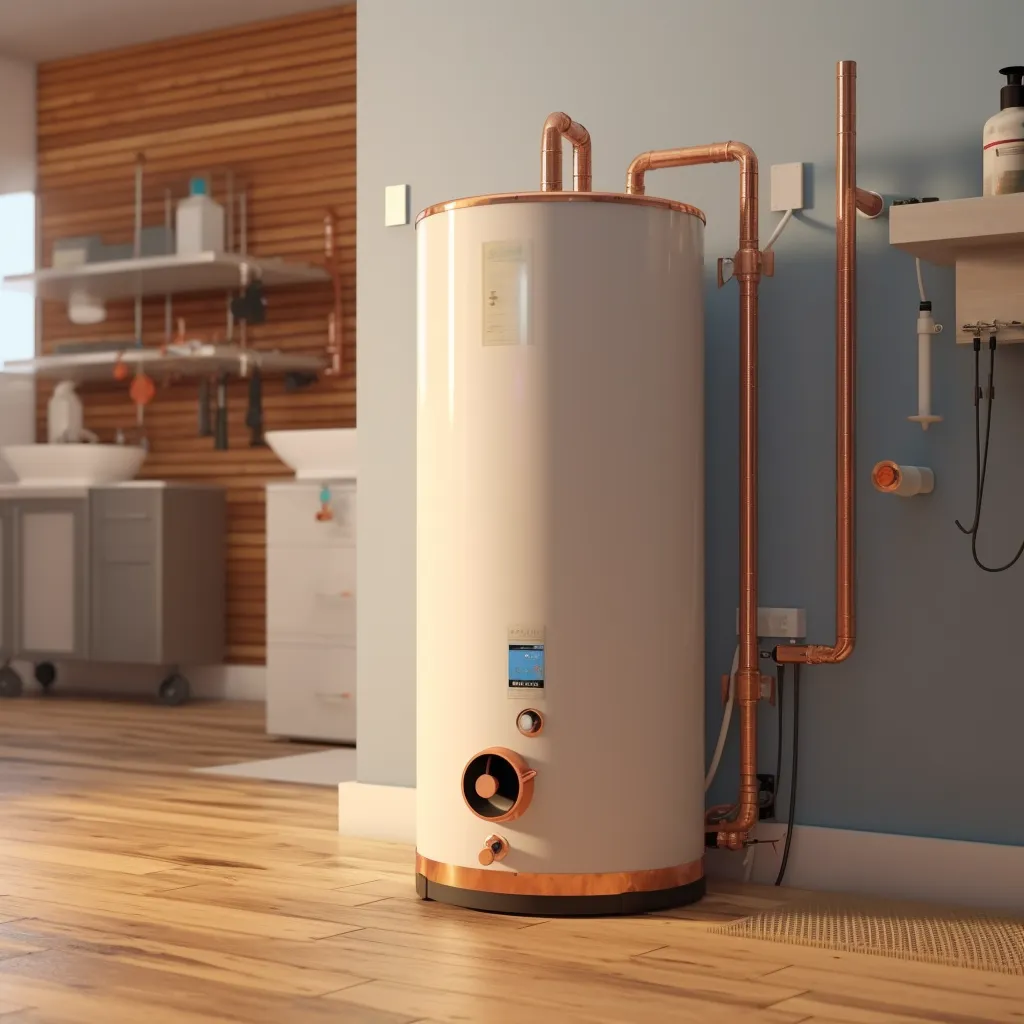
Regularly check water heater for corrosion, rust and leaks
To ensure the optimal performance and longevity of your water heater, it is important to regularly inspect it for these potential problems. This regular inspection can help identify any issues before they worsen and lead to significant damages or the need for water heater replacement. One of the main problems to watch out for is corrosion. Corrosion occurs when certain metals, such as the steel components in water heaters, react with the oxygen in the water, causing them to deteriorate. You can check for signs of corrosion by examining the exterior of the water heater for any visible rust or discolored areas. Additionally, check the water supply lines and valves for any signs of corrosion or rust accumulation. Leaks are another common issue that can occur with water heaters. They can be caused by a variety of factors, including worn-out seals, loose connections, or even internal tank damage. Regularly inspect the area around your water heater for any signs of water accumulation or dampness. Look for pooling water, water stains, or any visible drips. If you notice any leaks, it is crucial to address them promptly to prevent further damages. If you notice any corrosion, rust, or leaks during your inspections, it is recommended to contact a professional for further evaluation and potential water heater replacement. They can assess the severity of the issue and determine the best course of action to ensure your water heater continues to function efficiently and safely.
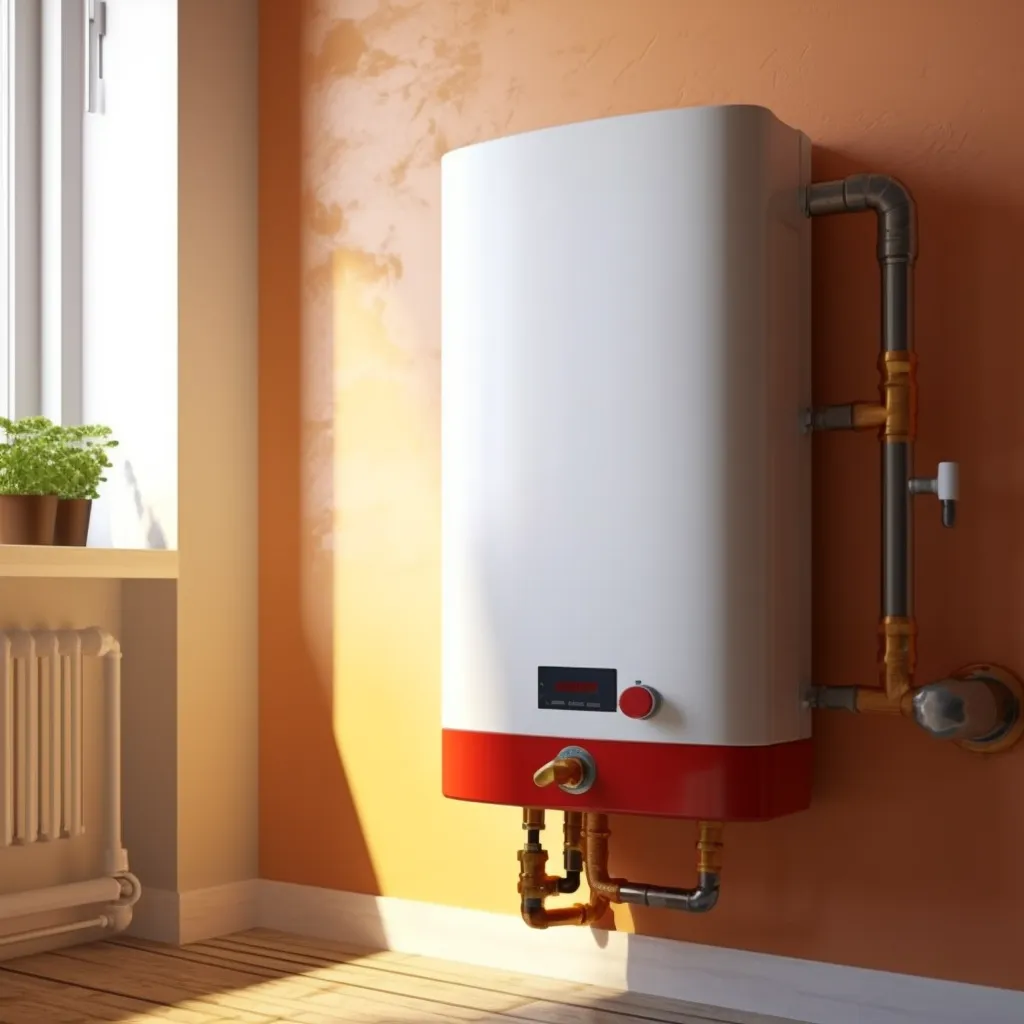
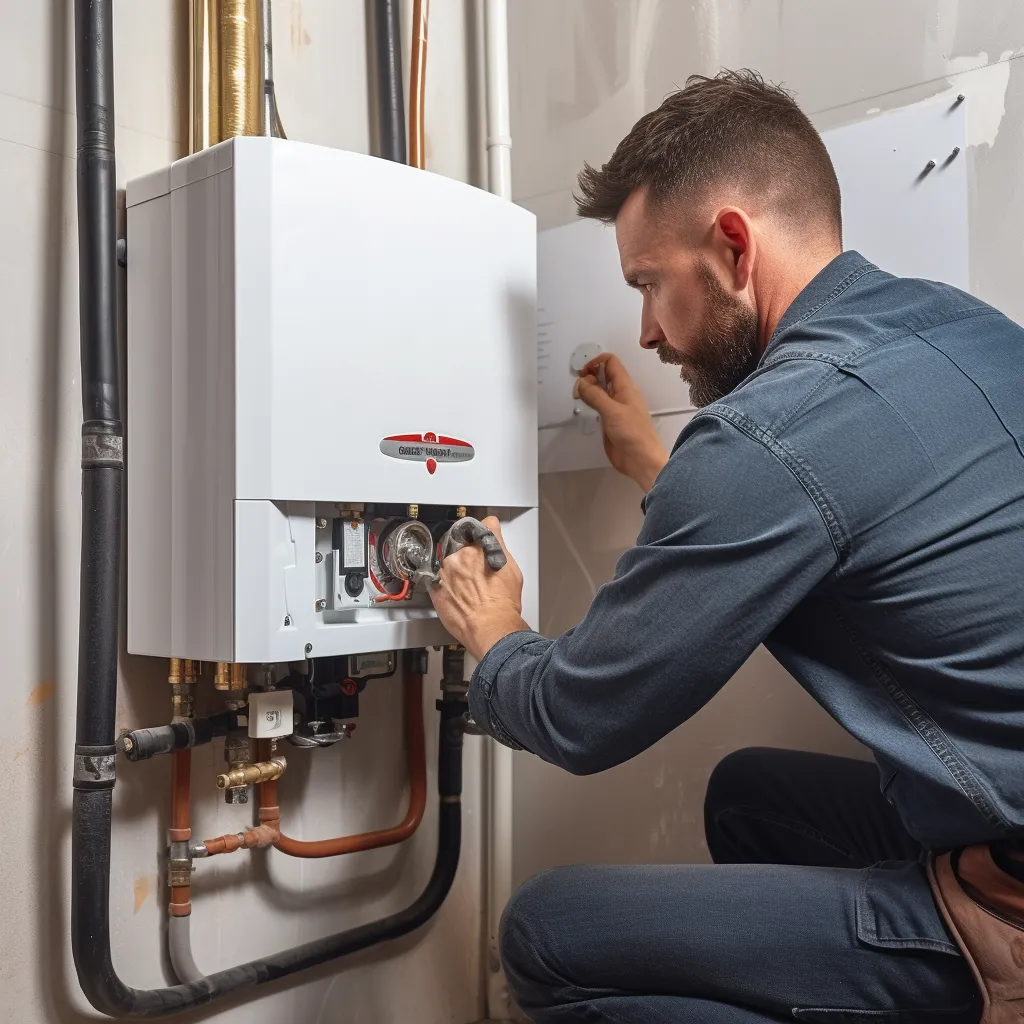
Keep the temperature at 120 degrees F
One important aspect to consider is maintaining a safe and comfortable temperature. The recommended temperature for your water heater is 120 degrees Fahrenheit. This temperature strikes a balance between hot enough to meet your daily needs and safe enough to prevent scalding. By keeping your water heater set at 120 degrees Fahrenheit, you can ensure that you have hot water whenever you need it without any risk of burns or scalding. This temperature is suitable for activities such as showering, washing dishes, and doing laundry. Additionally, it helps to minimize energy consumption and potential mineral buildup within the water heater, which can affect its efficiency and lifespan.
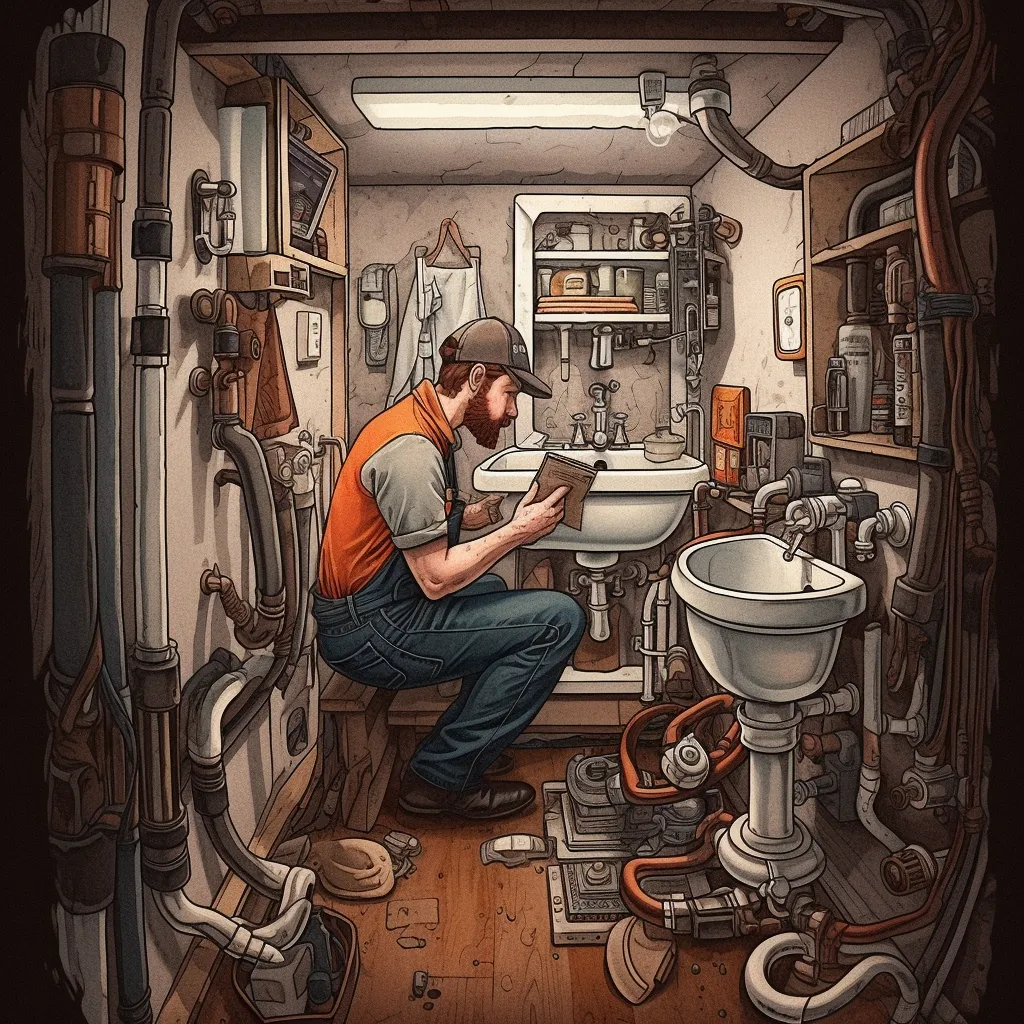
Check the anode rod on a regular basis for corrosion
Regularly inspecting the anode rod for signs of corrosion is an essential maintenance task. The anode rod plays a crucial role in preventing your water heater tank from rusting and deteriorating over time. Corrosion occurs when the anode rod breaks down, sacrificing itself to protect the tank. To ensure the longevity of your water heater, it is important to check the anode rod periodically. You can do this by locating the rod, which is usually located on the top of the tank. It is usually attached to the hot water outlet or placed in a separate port. To inspect the anode rod, you will need to turn off the power supply to the water heater and shut off the water supply. Once these steps are completed, you can remove the rod by unscrewing it from its position. Visually examine the rod for signs of corrosion; if it appears heavily corroded or has a significant amount of calcification, it may be time for a replacement. Replacing the anode rod is a simple process. Contact a professional plumber in Murfreesboro, to assist you with the replacement. It is crucial to choose the correct type of anode rod for your specific water heater model to ensure compatibility.
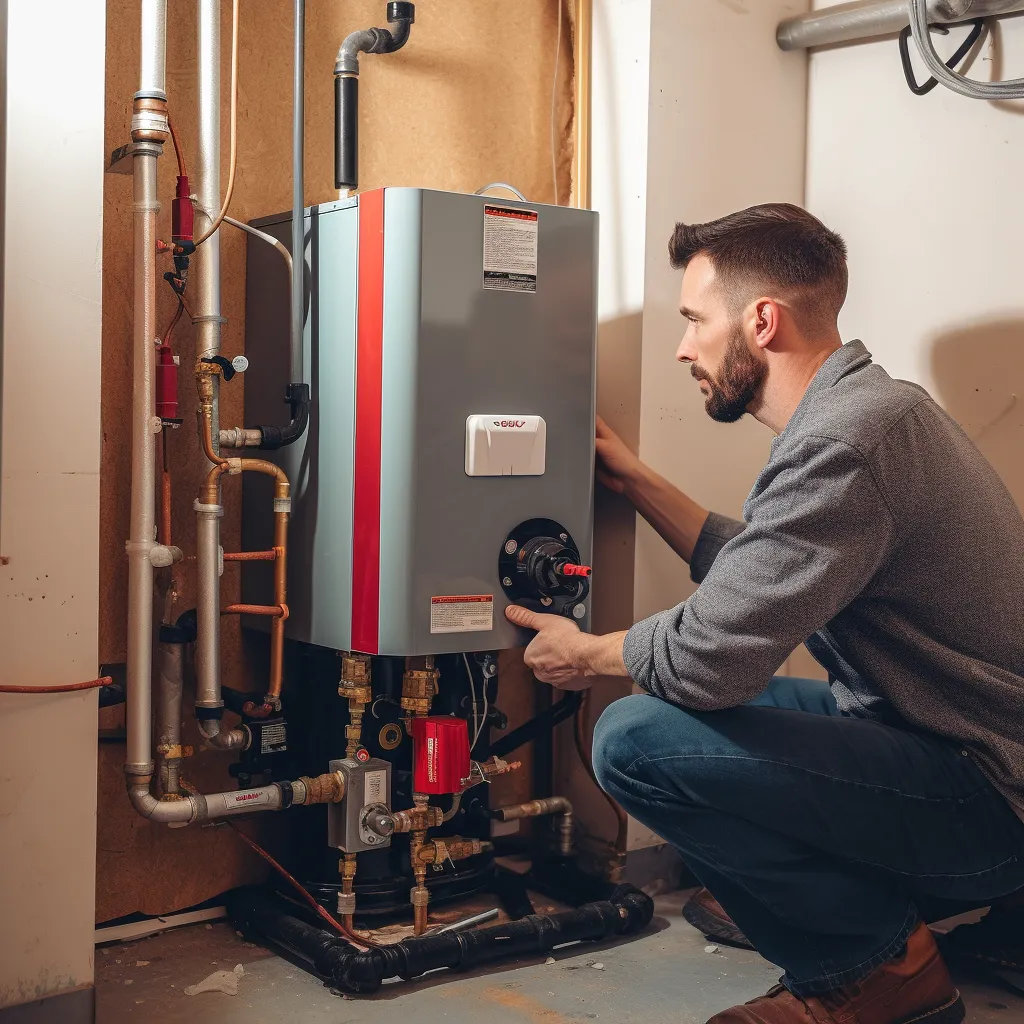
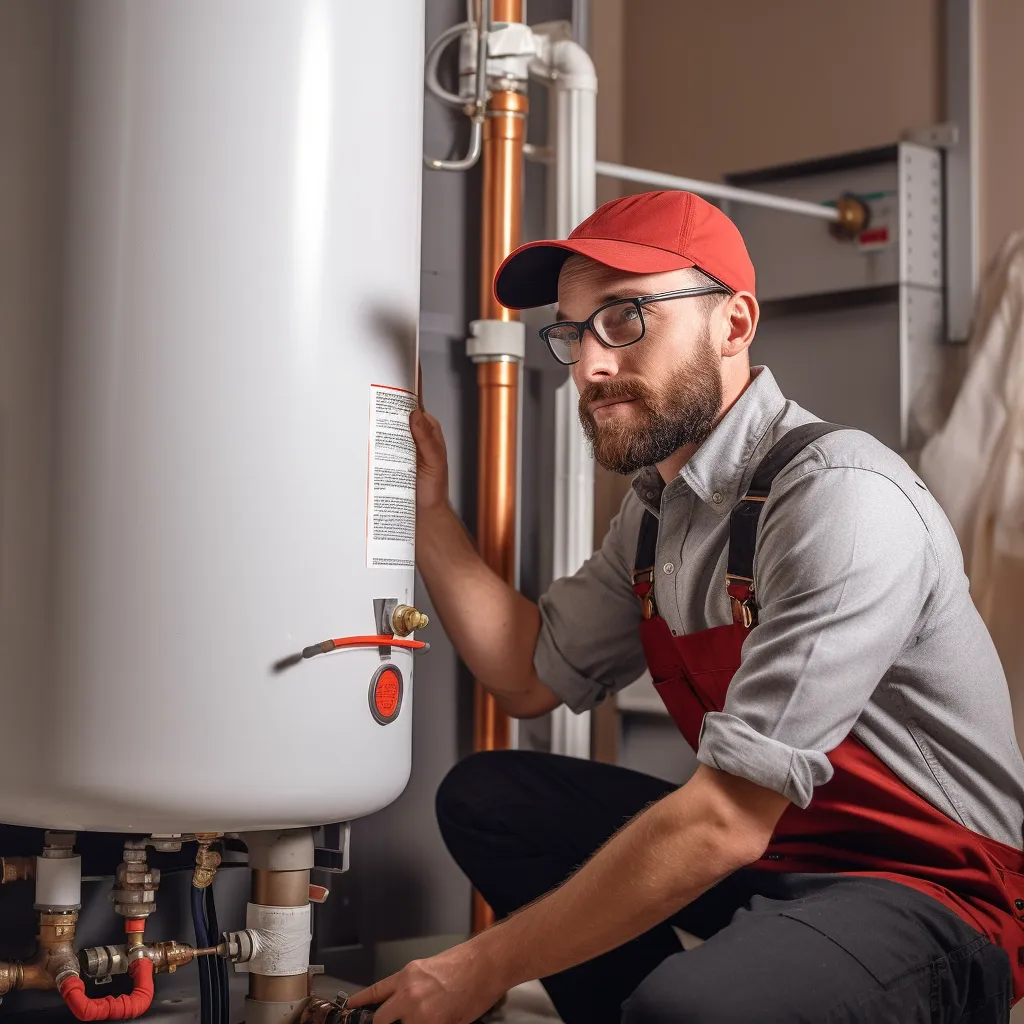
Ensure all the valves are working properly
Regular inspection of your valves is essential. By keeping a close eye on the condition of your valves, you can proactively prevent potential problems that can lead to water damage and increased energy bills. Leaking or malfunctioning valves can have significant consequences if left unchecked. Therefore, it is crucial to conduct simple checks on your valves to ensure they are functioning properly. By neglecting the maintenance of your valves, you run the risk of causing damage to your home and property. The cost of repairs can far surpass the expense of regular maintenance. So, make it a priority to inspect your water heater valves regularly. This small investment of time can save you from costly repairs and unnecessary hassle in the future. Stay proactive and protect your home and wallet by keeping an eye on your water heater valves and taking appropriate action when needed.

Make sure water heater connections are tight, secure, and leak-free
To safeguard your home from potential water damage, it is essential to prioritize the proper maintenance and care of your water heater system. One crucial aspect is ensuring that all connections are securely tightened and free from any leaks. Although it may seem like a minor concern, even a loose connection can have severe consequences if not promptly addressed. Regularly inspecting and tightening the connections in your water heater system is a crucial step in preventing any significant issues. By taking the time to perform this basic maintenance task, you can help safeguard your home from potential leaks and water damage. It is a simple yet effective way to ensure the long-lasting performance of your water heater system.
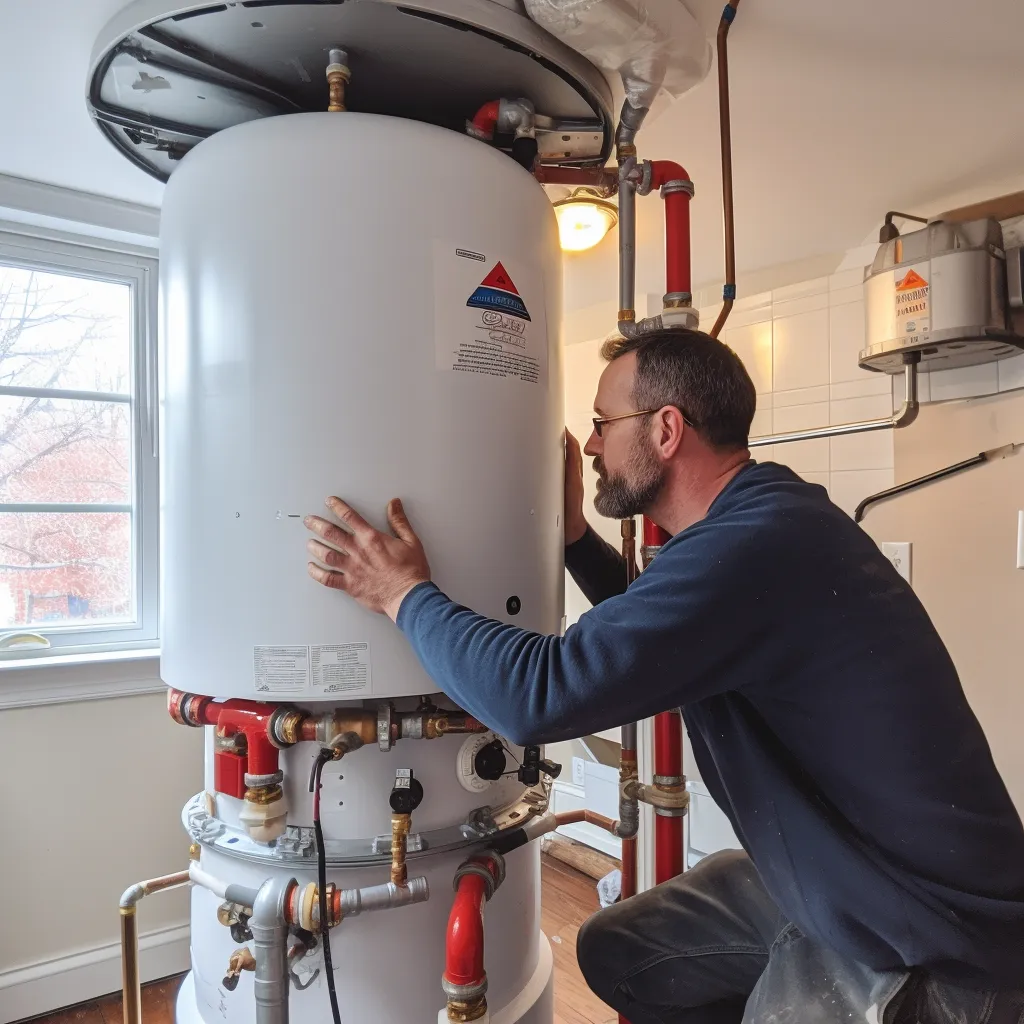
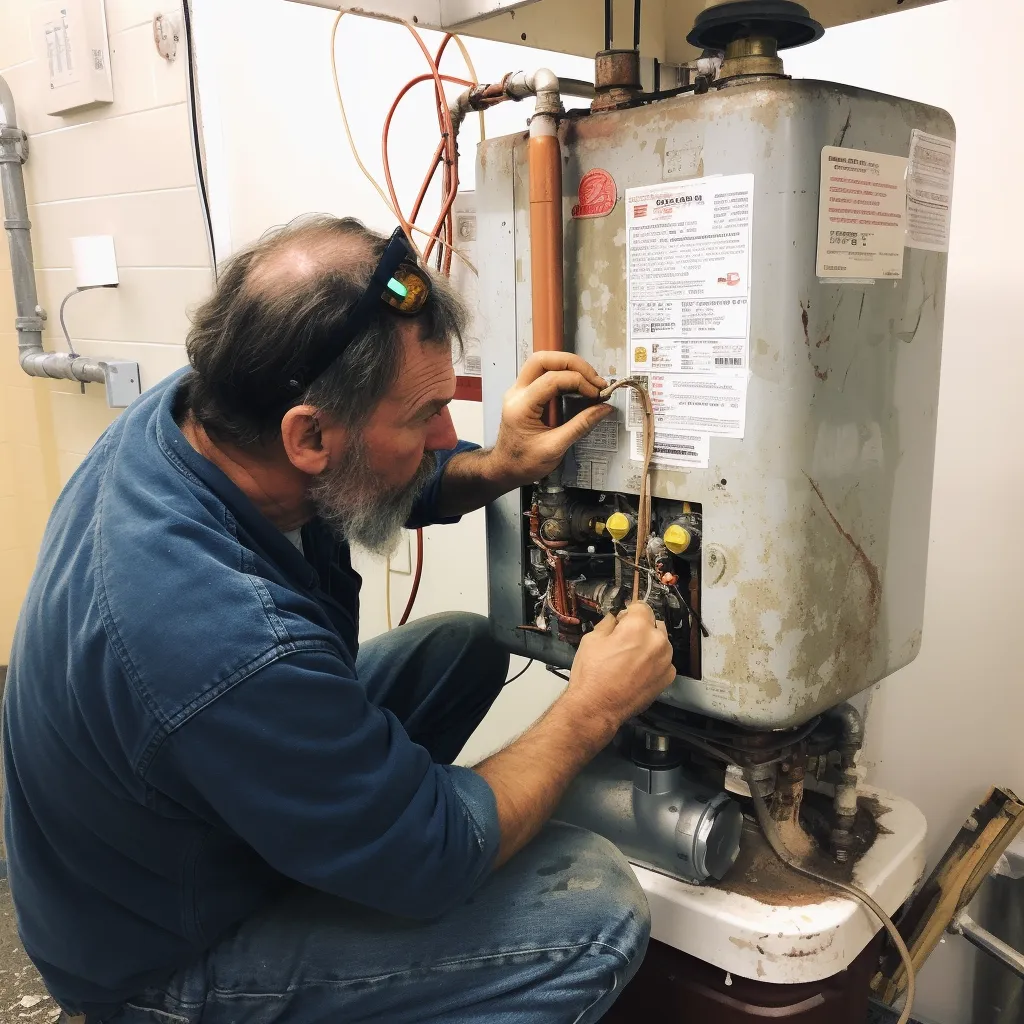
Insulate pipes to cut down on heat loss
When it comes to optimizing your water heater's energy efficiency, insulating your pipes can make a significant difference. By reducing heat loss, you can maximize the overall performance of your water heater system. Insulating your pipes offers multiple benefits. First, it minimizes heat transfer from the hot water within the pipes to the surrounding environment, meaning less energy is required to maintain a consistent temperature. This can result in significant cost savings on your energy bills. Secondly, by reducing heat loss, you can also improve the overall performance of your water heater. When hot water travels through uninsulated pipes, it experiences heat loss, resulting in decreased water temperature by the time it reaches the desired faucet or appliance. By insulating the pipes, hot water can retain its temperature for longer periods, providing consistent and comfortable heating throughout your home. Another advantage of insulating your pipes is the prevention of condensation. Cold pipes running through warm areas can result in condensation buildup, leading to dampness and potential damage to your property. By insulating the pipes, you can prevent condensation from occurring, protecting your home from any potential water damage.

Inspect heating elements
One crucial step is to inspect the heating elements. Whether you have a gas or electric water heater, the heating elements play a significant role in ensuring hot water is readily available in your home. If you notice that your water heater isn't producing enough hot water or if the water takes longer to heat up, it may be an indication that the heating elements need to be replaced. Over time, these elements can deteriorate and become less effective at heating the water. To inspect the heating elements, you will need to turn off the power supply to the water heater. If you have an electric water heater, you can do this by turning off the corresponding breaker in your electrical panel. If you have a gas water heater, you will need to turn the gas knob to the off position. Once the power supply is off, you can remove the access panel on the water heater. Depending on the model, this panel may be located at the front or the back of the unit. Carefully remove any insulation that may be covering the elements. With a voltage tester, check for electrical current to ensure there is no power flowing to the elements. Safety should always be a priority, so ensure that the power is off before proceeding. Inspect the heating elements for any signs of damage, such as corrosion or mineral deposits. If you find any damaged or corroded elements, they will need to be replaced. It's always best to consult a professional for guidance and to ensure the proper replacement elements are used. If you are not comfortable performing this inspection yourself, it is recommended to contact a qualified plumber or water heater technician. They have the knowledge and expertise to diagnose and replace the heating elements if necessary.
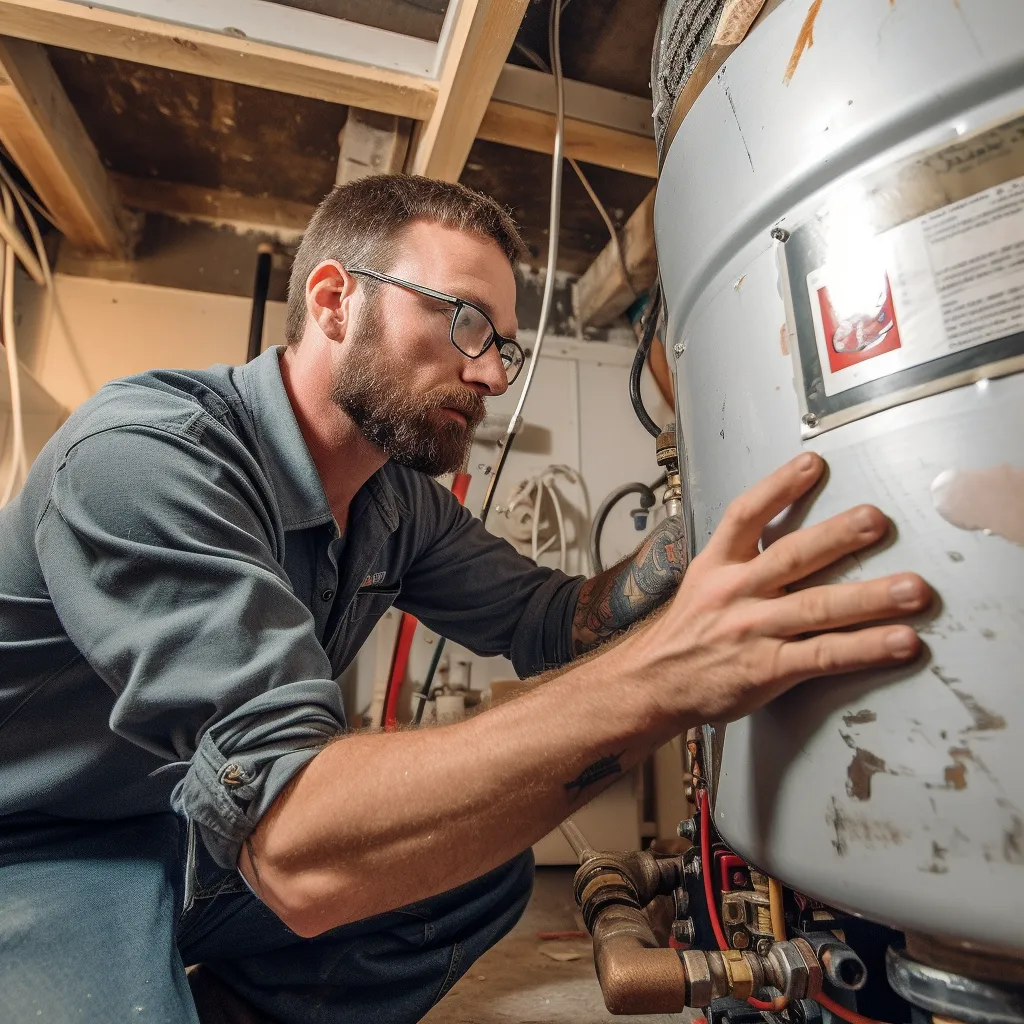
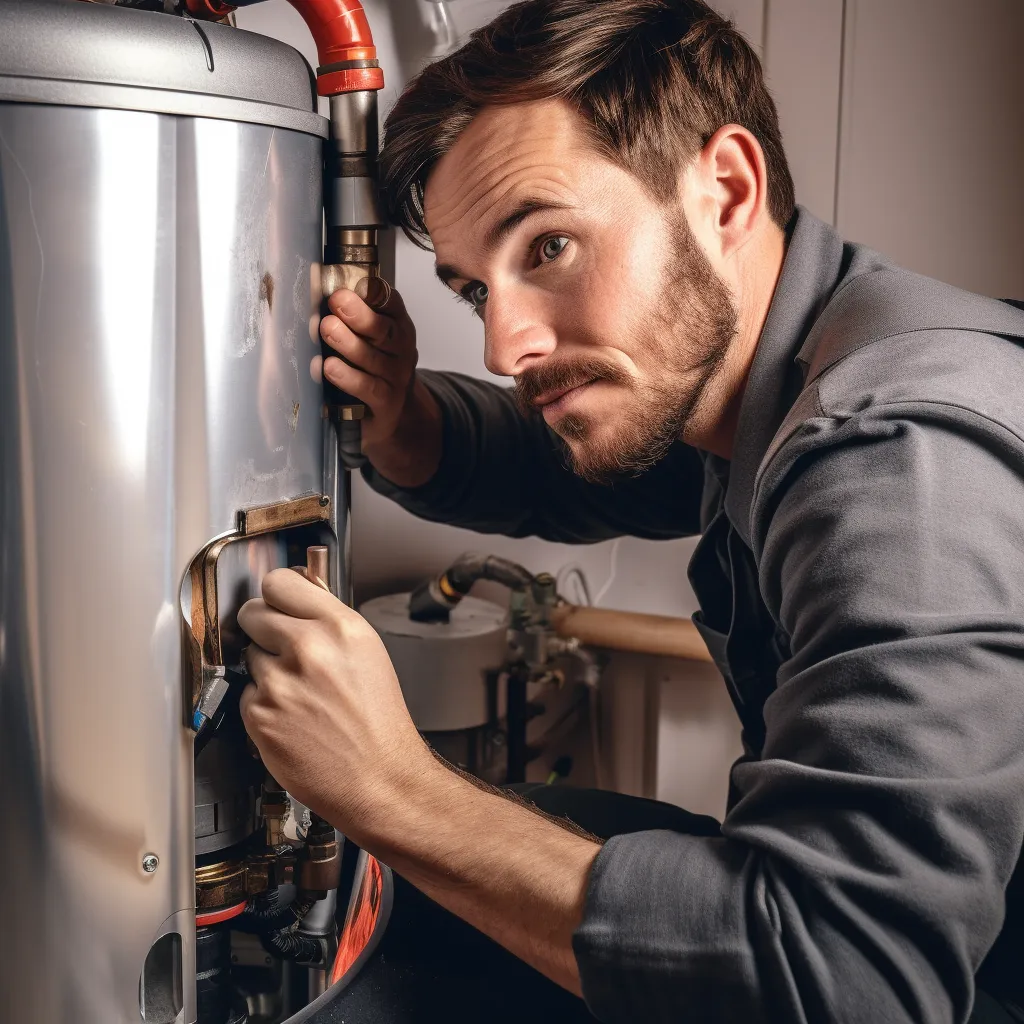
Ventilate the area around your water heater for best performance
Ensure proper ventilation in the surrounding area. Adequate ventilation plays a significant role in the efficient operation of your water heater. When your water heater is properly ventilated, it allows for the smooth flow of air around the unit, helping it function at its best. This is particularly important because the combustion process in gas water heaters requires a constant supply of fresh air to prevent the buildup of harmful gases like carbon monoxide. To ensure proper ventilation, start by clearing any obstructions around your water heater. Keep the area free from boxes, cleaning supplies, or any other items that may impede the airflow. Make sure that the water heater is not positioned near flammable materials and is easily accessible for inspection and maintenance. It's also crucial to check for any blockages in the vents or flues connected to your water heater. Over time, debris or nesting animals can obstruct these passages, reducing airflow and affecting the performance of your water heater. Regular inspections and cleaning are necessary to address these issues and maintain optimal ventilation. Properly ventilating the area around your water heater is not only essential for its performance but also for your safety. By ensuring a well-ventilated environment, you can have peace of mind knowing that your water heater is operating efficiently and your home is protected from potential hazards.

Regularly drain and clean the tank yearly
Regular maintenance is crucial for the proper functioning of your water heater and to maintain a steady supply of hot water. The accumulation of sediment and debris inside the tank over time can hinder its efficiency and lead to corrosion. To prevent these problems, it is advised to drain and clean your water heater at least once a year. This will effectively remove any buildup and ensure the longevity of your water heater.

Ensure connections are tight and replace any parts that are worn
Ensure that all connections are tight and in good condition. It's crucial to check for any loose fittings or leaks. If you notice any worn-out parts during the inspection, they should be replaced promptly to prevent any potential issues in the future. By paying attention to these details and taking necessary actions, you can ensure the successful of your water heater.

Have a professional inspect and service your water heater every two years
To ensure the optimal performance and longevity of your water heater, it is vital to have a professional inspect and service it every two years. By entrusting this task to a knowledgeable expert, you can greatly reduce the risk of unexpected breakdowns and costly repairs. During the inspection, our professionals will assess all components of your water heater, including the tank, heating elements, thermostat, and safety valves. They will check for any signs of wear and tear, potential leaks, or other issues that may compromise its efficiency. By addressing these concerns proactively, we can prevent major problems and extend the lifespan of your water heater. Investing in regular water heater inspections and services not only safeguards the functionality of your system but also enhances the safety of your home. Our professionals are trained to identify any potential safety hazards and take appropriate measures to eliminate them, ensuring your family remains protected.
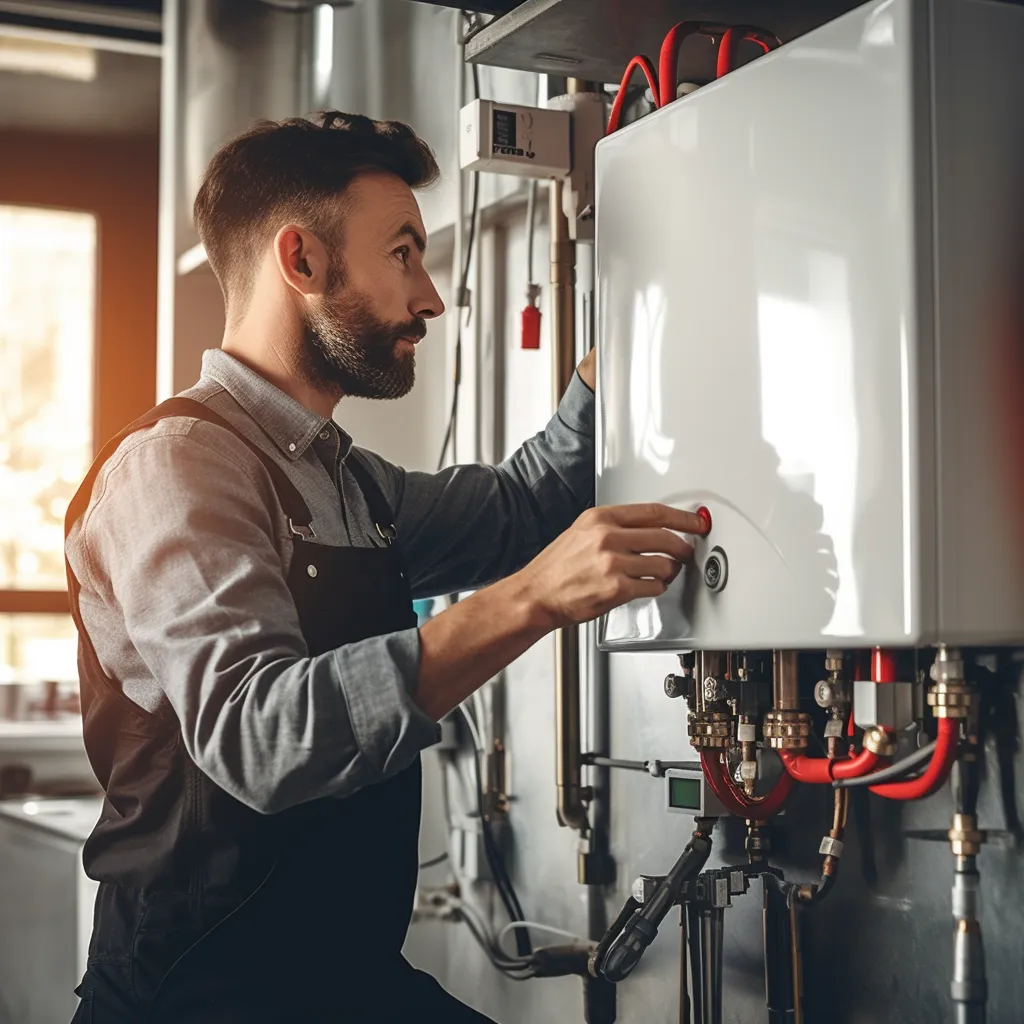
What to look for in a licensed plumber
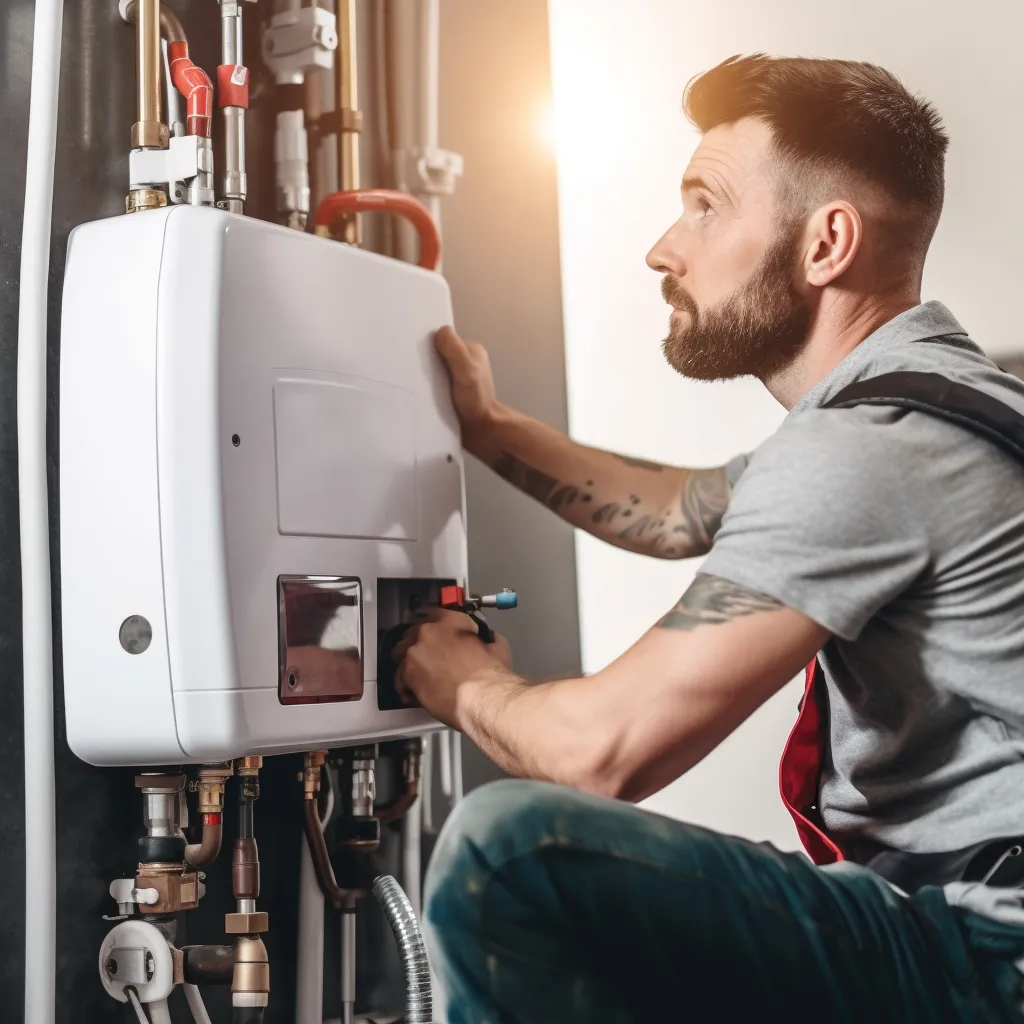
If you need a licensed plumber for your water heater repair or replacement, there are several key factors to consider. Hiring a professional who is experienced and knowledgeable in water heater installation can ensure that the job is done correctly and efficiently. Here are some important things to look for when choosing a licensed plumber:
Licensing and Certification: First and foremost, make sure the plumber you hire is licensed and certified to work in Murfreesboro. This ensures that they have the necessary skills and qualifications to handle your water heater replacement.
Experience and Expertise: It is essential to hire a plumber who has experience in water heater installation. An experienced plumber will have the necessary knowledge and skills to replace your water heater safely and efficiently. Look for a plumber with a solid track record and positive customer reviews.
Insurance Coverage: Check if the licensed plumber has liability insurance. This is important as it provides protection for any damages that may occur during the installation process. Hiring a plumber with insurance coverage gives you peace of mind knowing that you are protected in case of accidents or property damage.
Warranty and Guarantees: Inquire about any warranties or guarantees the plumber offers for their work. A reputable plumber will stand behind their services and provide warranties for parts and labor. This ensures that any potential issues that arise after the water heater replacement will be covered.
Transparent Pricing: It is essential to get a detailed estimate or quote from the plumber before hiring them. Make sure they provide a breakdown of the costs, including the price of materials and labor. This transparency ensures that you won't encounter any surprises when it comes time to pay the bill.
Responsive Communication: Choose a licensed plumber who is responsive and communicates effectively. A professional plumber should be prompt in answering your inquiries and providing updates on the progress of the water heater replacement. Good communication ensures smooth and efficient coordination throughout the process.
By considering these important factors, you can find a licensed plumber who is well-equipped to handle your water heater replacement. Taking the time to choose a reliable professional will save you from potential headaches down the road and ensure that your water heater operates smoothly for years to come.
Contact Us
GET IN FULL TOUCH
PHONE: 615-671-4918
EMAIL:
steven@waterheatermurfreesboro.com
Rutherford Plumbing Heating & Cooling
Murfreesboro, TN 37128
